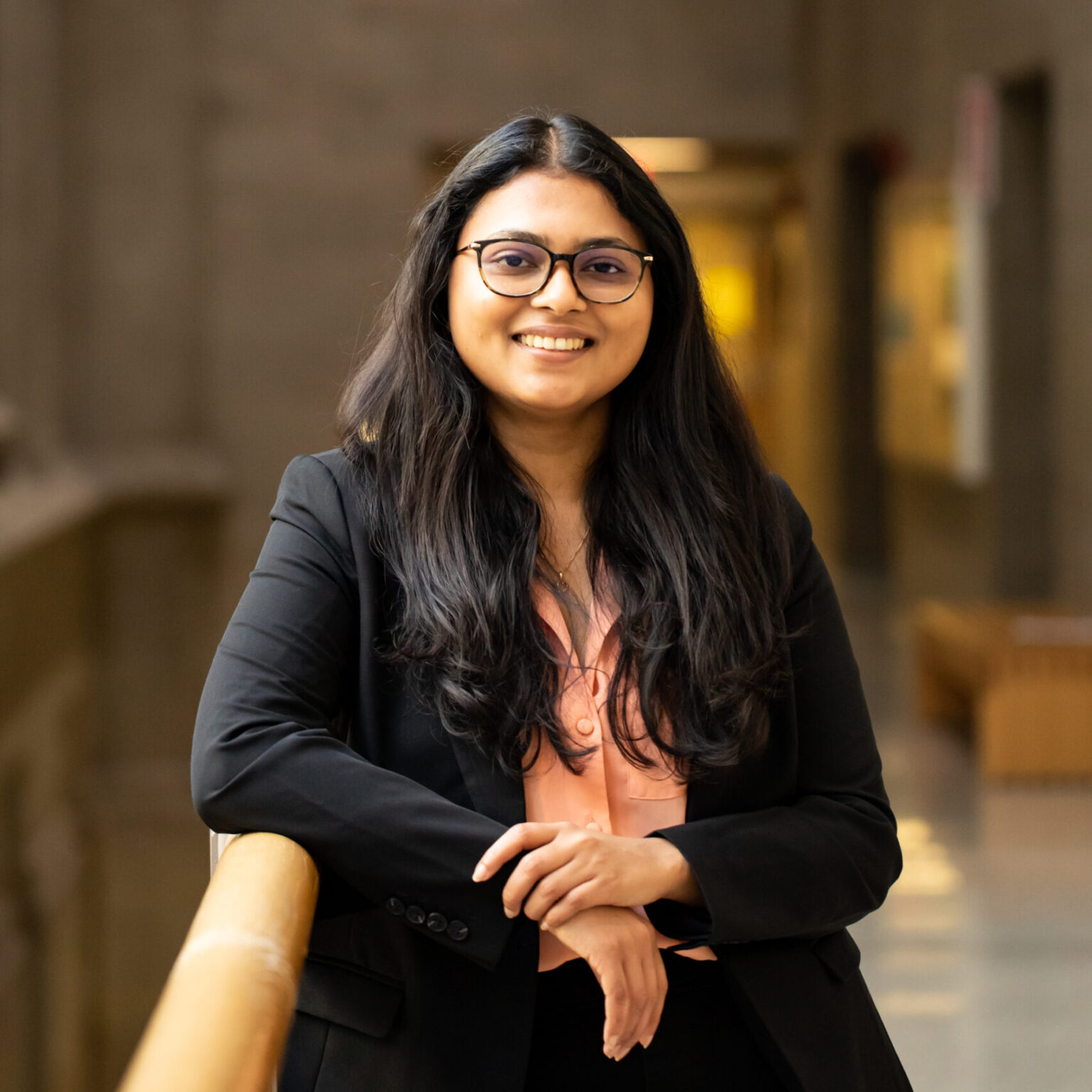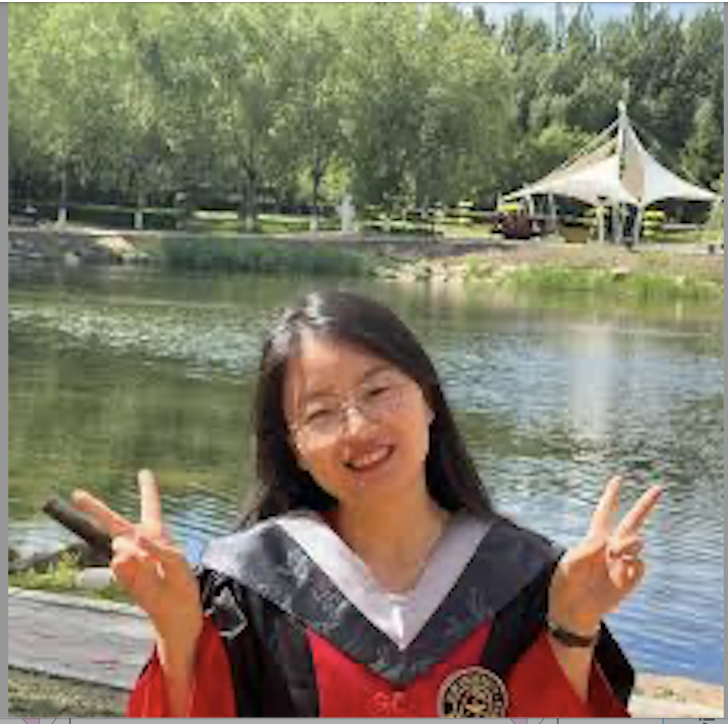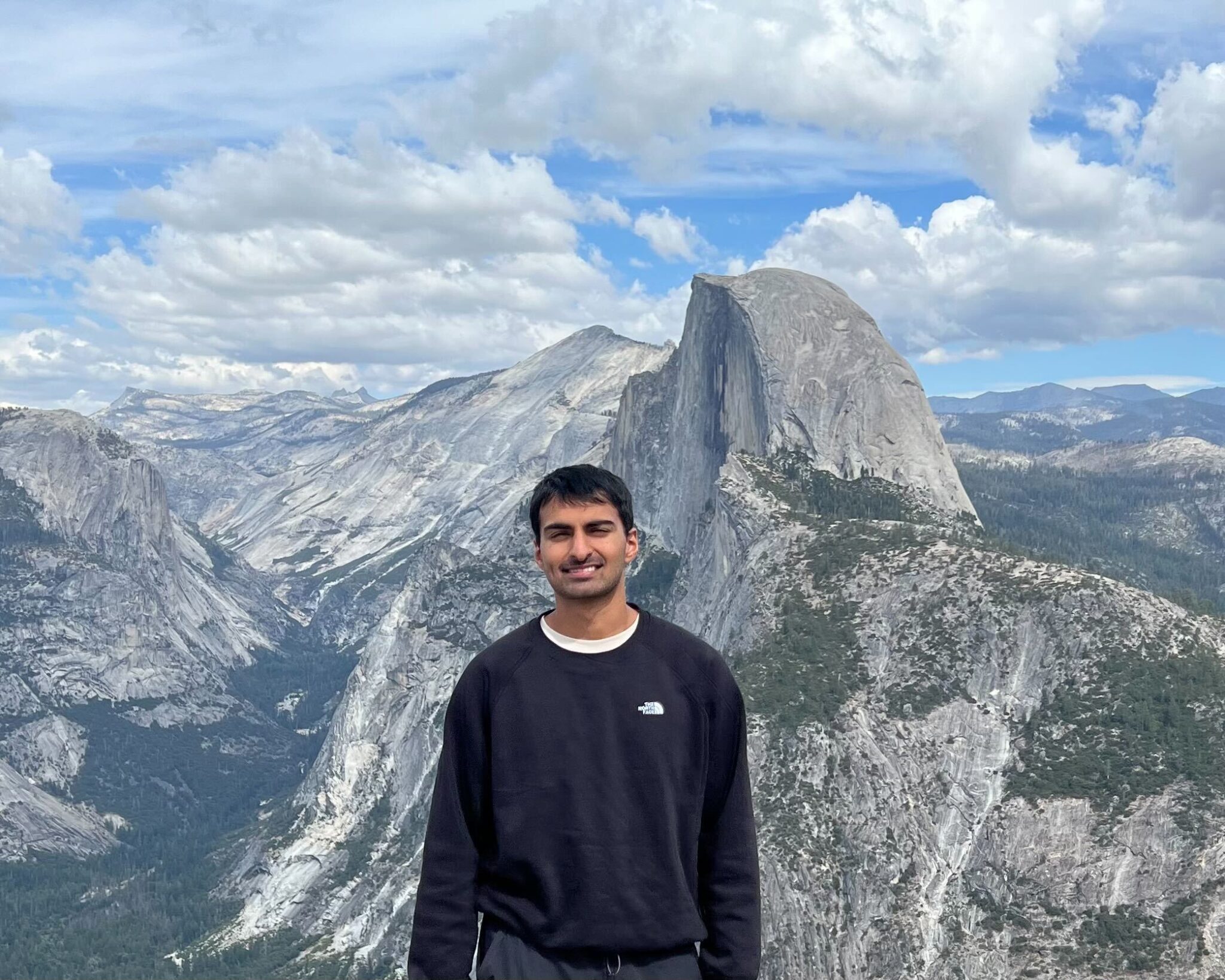Principal Investigator
 | Dr. Teresa Head-Gordon Chancellor's Professor Pitzer Theory Center Department of Chemistry, Bioengineering, and Chemical and Biomolecular Engineering University of California, Berkeley Senior Faculty Scientist Chemical Sciences Division Lawrence Berkeley National Laboratory Contact information: 274 Stanley Hall Email: thg [at] berkeley [dot] edu |
Administrative Assistant
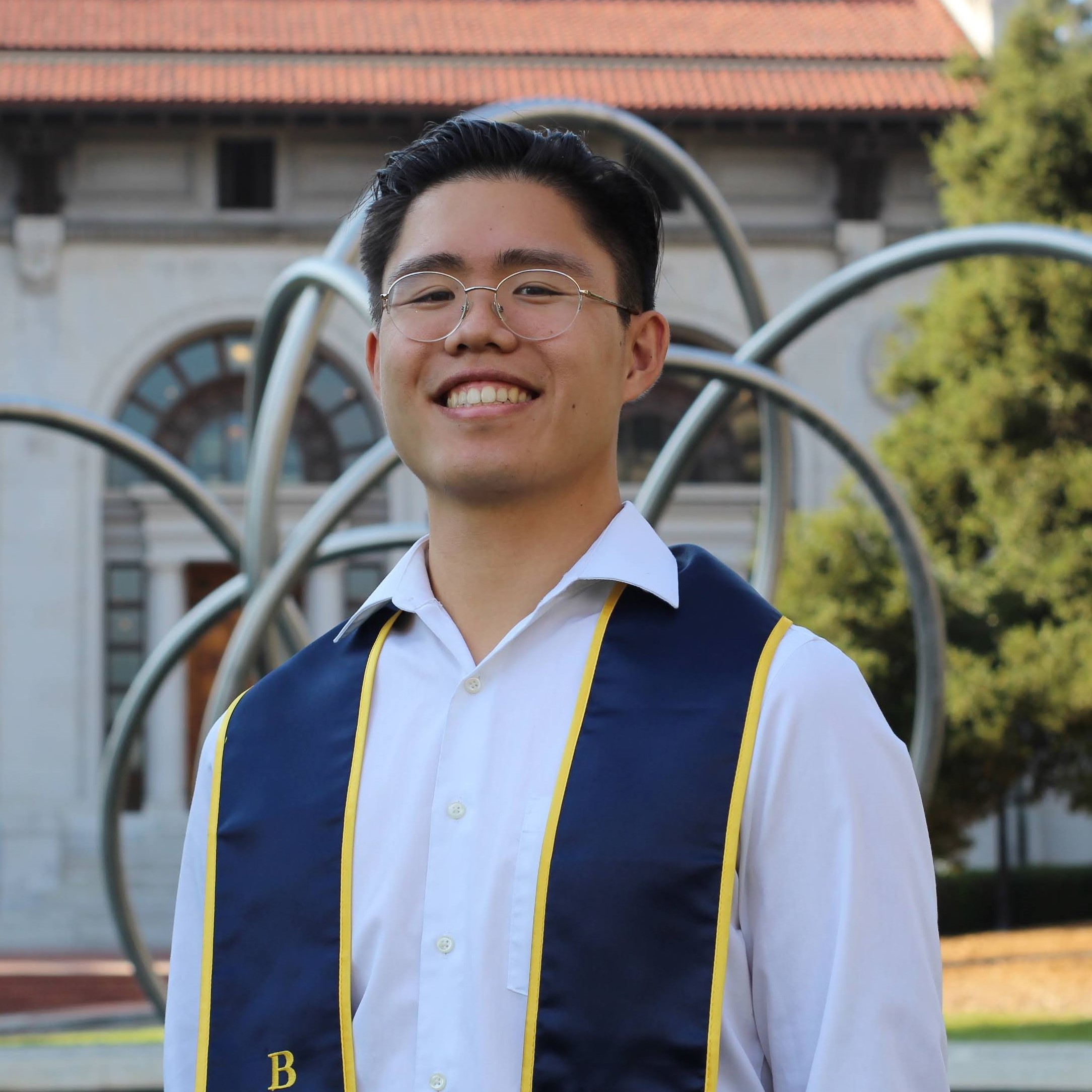 Brian Huang Office: 214 Gilman Hall Phone: 510-642-9617 Email: bhuang17@berkeley.edu |
Post-doctoral Scholars

I am interested in understanding liquid interfaces and their potential for altering chemical reactivity. To this end, I develop models for the experimentally obtained spectra of these interfaces. I am also interested in understanding adsorption thermodynamics at interfaces to better design chemical systems for specific reactions.
- alacour@lbl.gov
- 260D Stanley Hall

I am interested in physically realistic descriptions of aqueous interfaces with a particular focus on observations of enhanced reactivity in sprayed and emulsified microdroplets. This usually involves a combination of molecular dynamics and high-level electronic structure calculations. I also work on the construction of advanced force fields that aim to quantitatively reproduce an energy decomposition analysis, including all many-body contributions. In the long-term, I hope to combine these advanced force fields with machine learning to bring more physical realism to the exciting field of machine-learned interatomic potentials.
- heindelj@lbl.gov
- 260C Stanley Hall
Graduate Students

I apply machine learning to model structural ensembles for disordered proteins and drug discovery.
- oz57@berkeley.edu
- 260E Stanley Hall
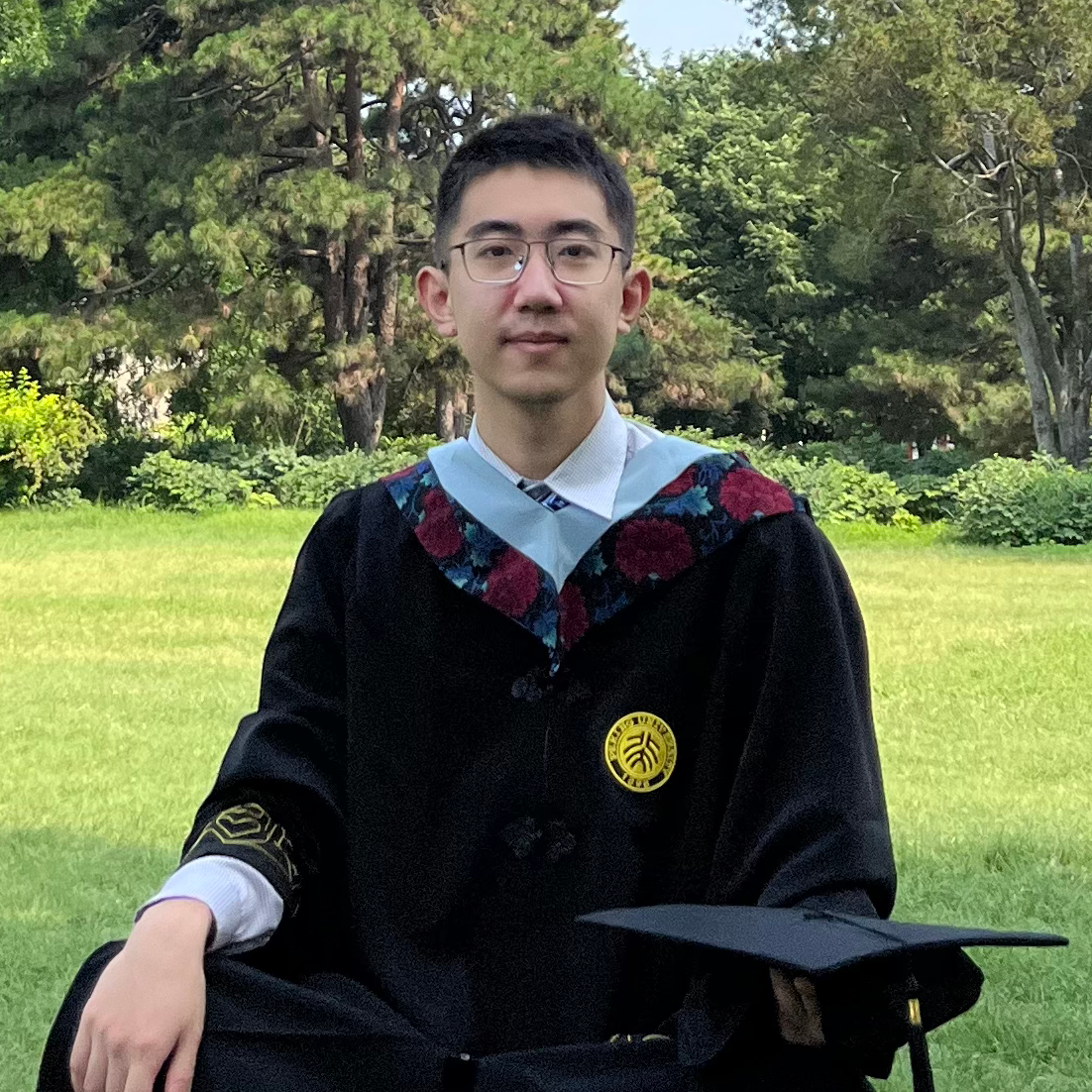
My thesis research focuses on developing advanced many-body polarizable force fields (MB-UCB) for biomolecules using energy decomposition analysis (EDA), as well as studying the bio-molecular interactions. I’m also involved in a drug-discovery project where we use deep reinforcement learning to generate viral inhibitors and apply physics-based methods including docking, molecular dynamics and free energy perturbation to evaluate the potency.
- ericwangyz@berkeley.edu
- 260C Stanley Hall
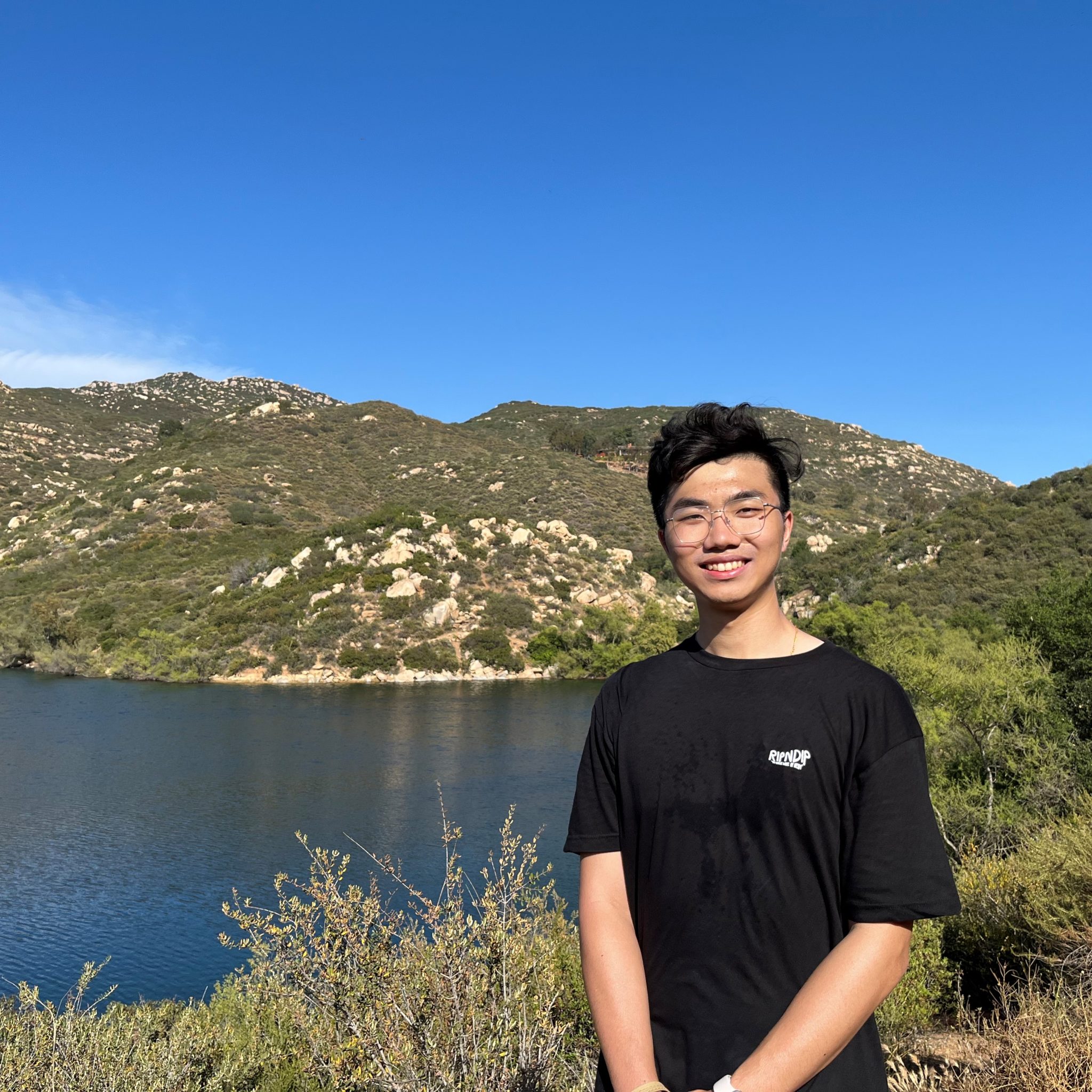
I am dedicated to investigating the intricate dynamics of protein flexibility within the realm of drug discovery. My research focuses on utilizing computational methodologies, including both classical approaches and deep learning techniques, to evaluate the entropy associated with protein-ligand binding interactions.
- kysun@berkeley.edu
- 260C Stanley Hall
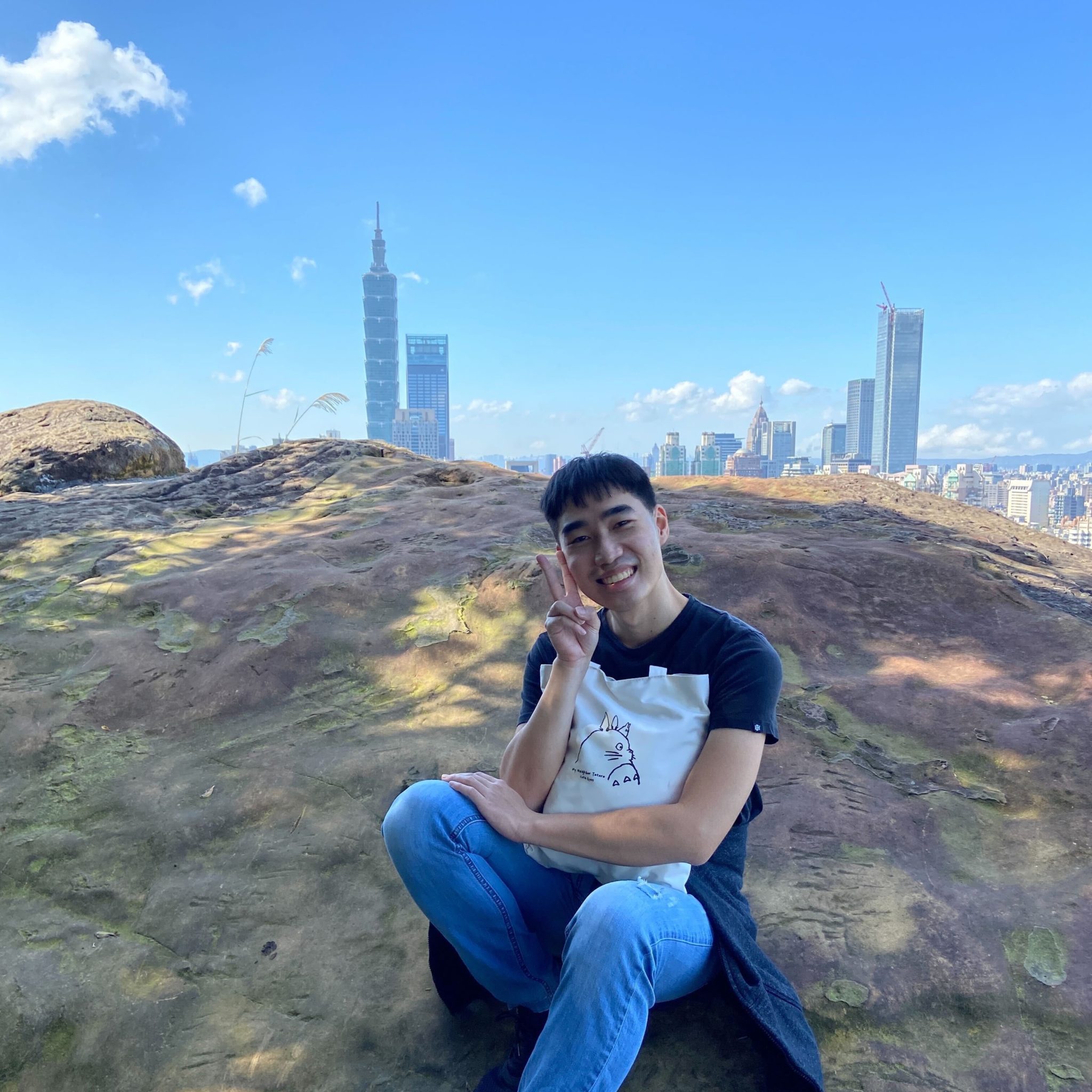
My research aims to harness the full potential of machine learning models. By leveraging the accuracy and efficiency of these models, we can achieve precise predictions of high-order derivatives without the need for explicit training on them. This capability extends to calculating Hessians on potential energy surfaces, which are essential for optimizing transition states, as well as predicting chemical shifts with ab initio quality and force field efficiency.
- ericyuan@berkeley.edu
- 260D Stanley Hall
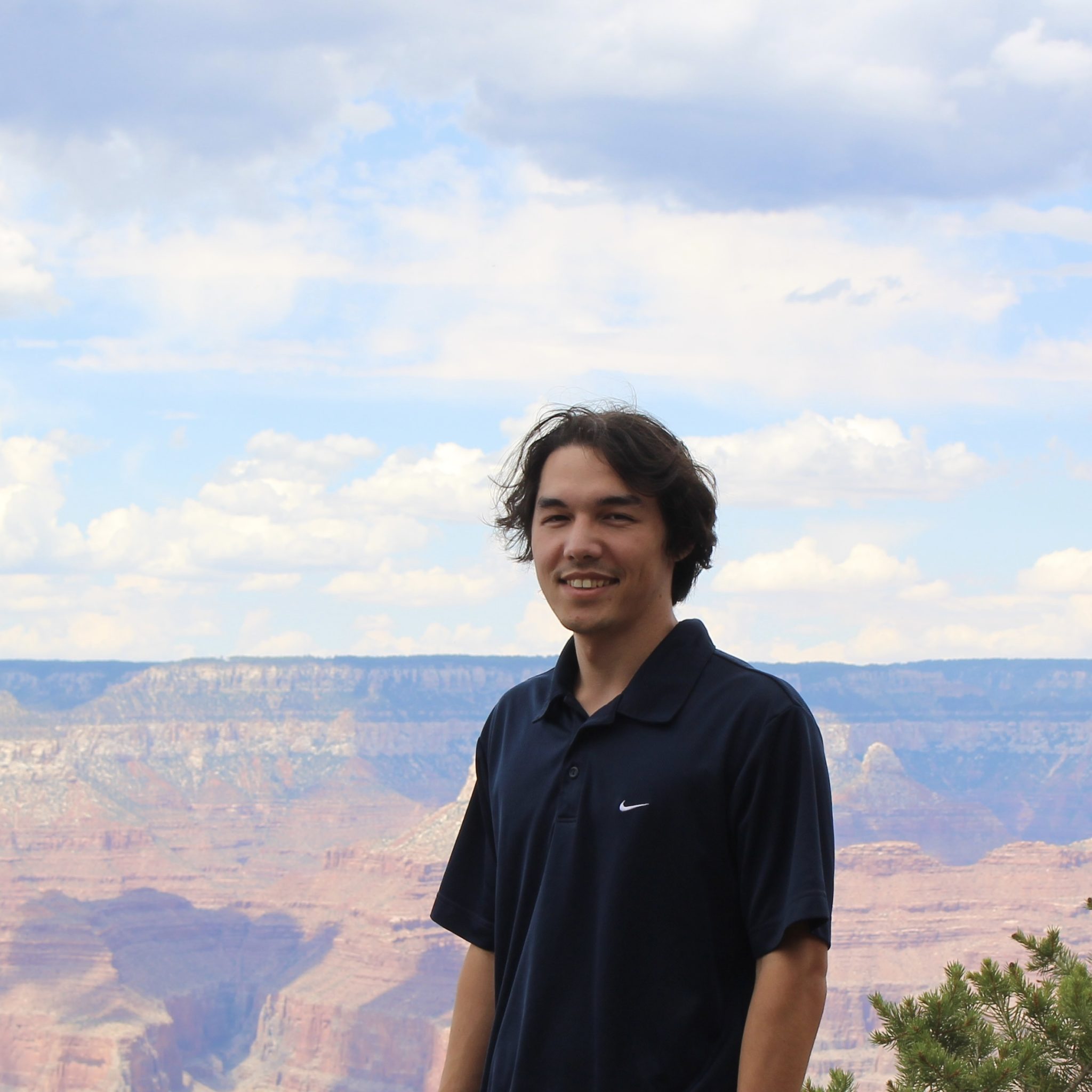
My research focuses on the development of reactive force fields informed by molecular properties of reactivity, such as the Mayer and Wiberg bond indices. I use a combination of machine learning and empirical models to enable future large-scale and routine studies of reactive systems.
- kim_lukas@berkeley.edu
- 260A Stanley Hall
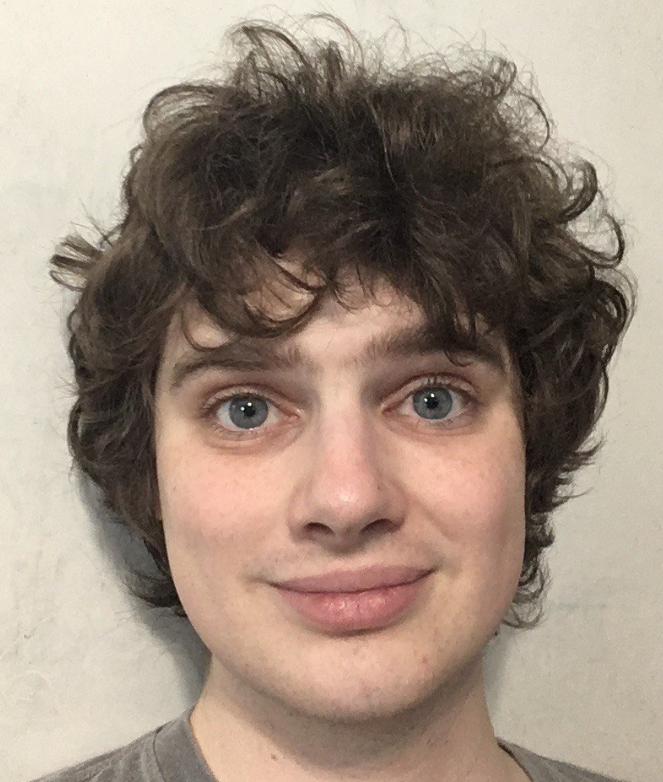
My current research focuses on developing methodology for antiviral discovery. To do this, I'm turning large language models (LLMs) into chemical language models (CLMs) with the ability to generate drug-like molecules with specific properties. I'm also optimizing various compounds for antiviral ability.
- jmcavanagh@berkeley.edu
- 260 Stanley
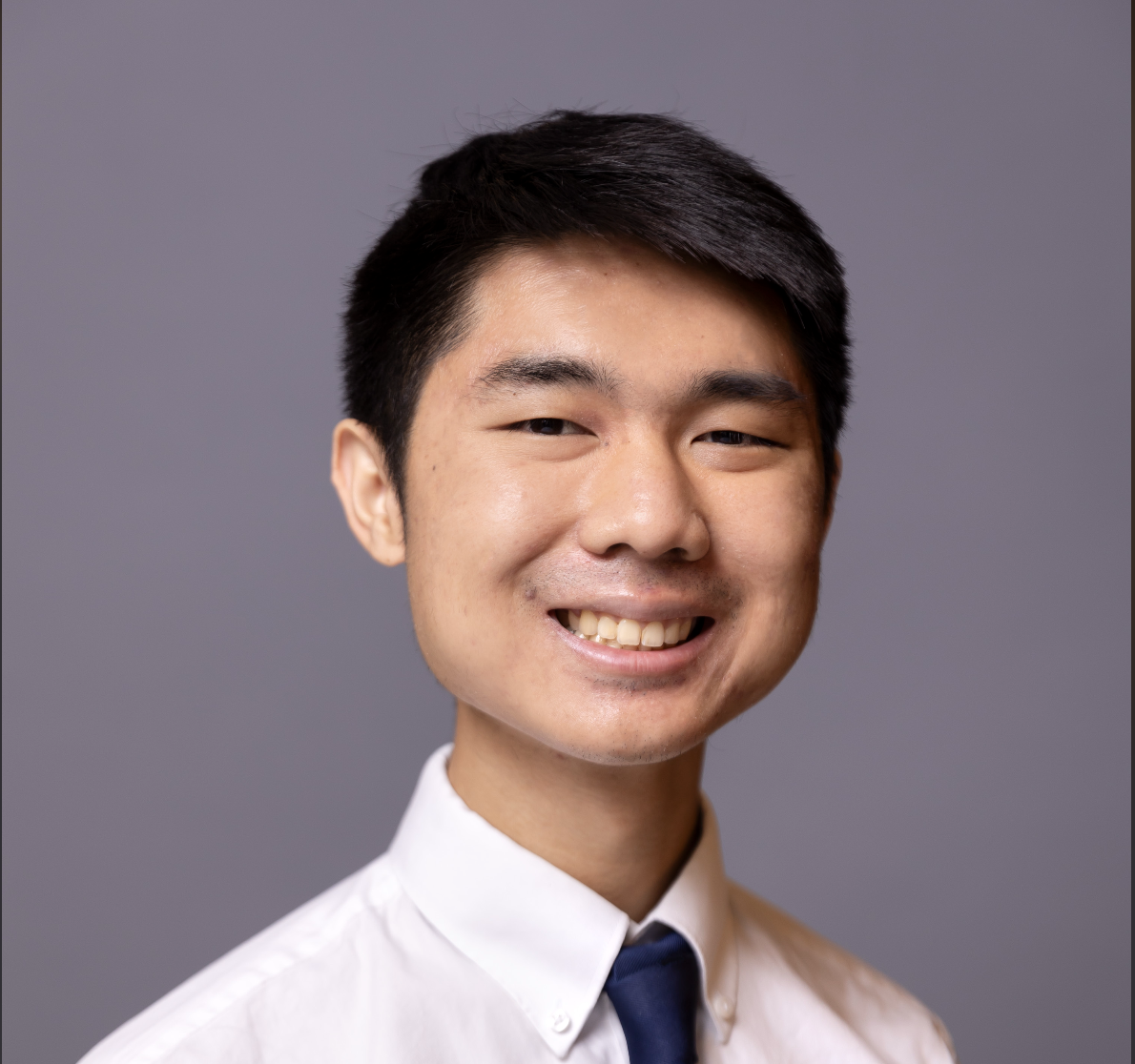
My research focuses on developing accurate free energy methods in drug discovery. To this end, I build machine learning models that integrate evolutionary sequence conservation and protein structure information to further our understanding of protein-ligand interactions.
- justin_purnomo@berkeley.edu
- Stanley 260
Undergraduate Students
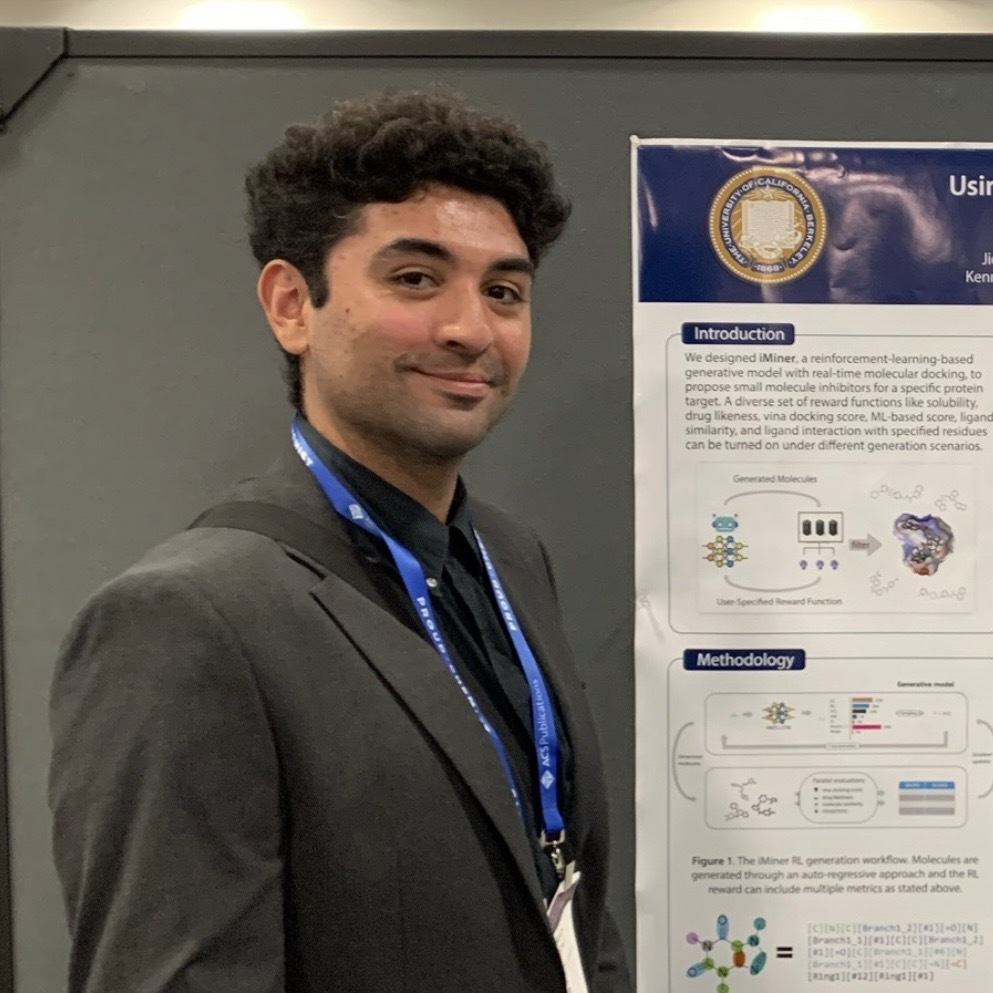
I utilize machine learning and advanced computational techniques to model protein-ligand interactions. My research focuses on developing innovative frameworks to enhance the efficiency and accessibility of tools, thereby accelerating the drug discovery process for scientists.
- dorianbagni@berkeley.edu
- Stanley 260

